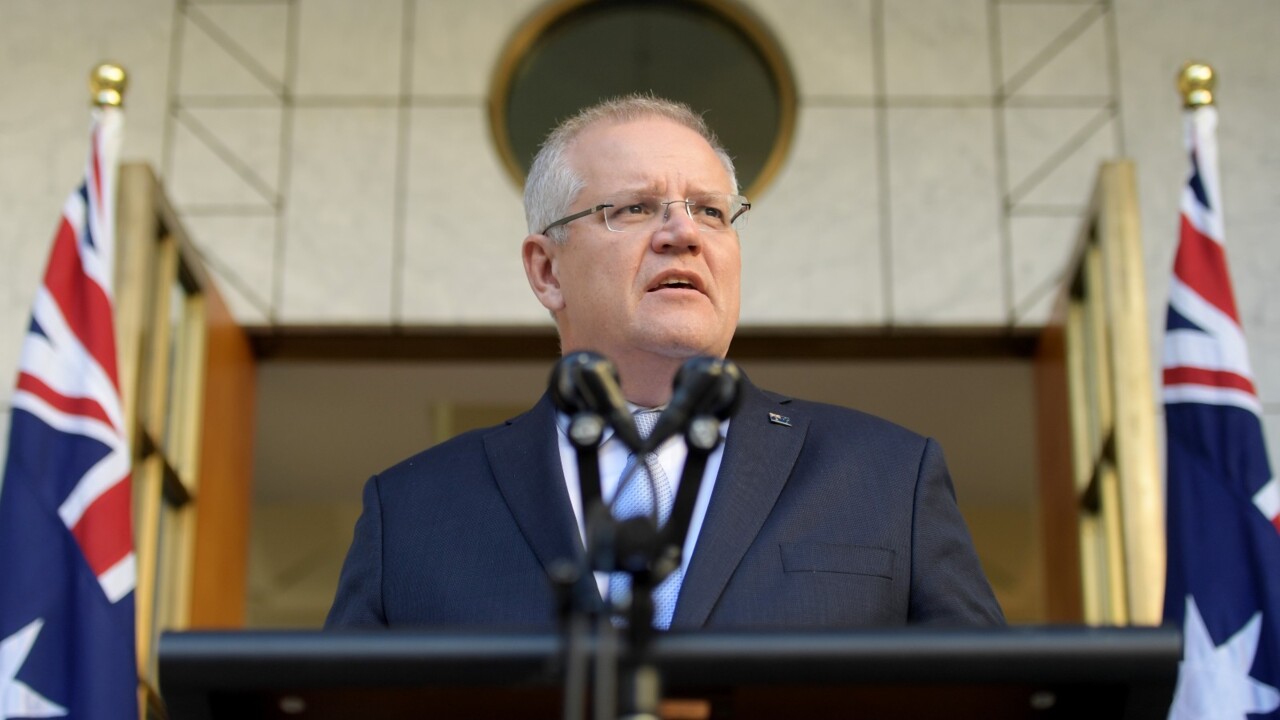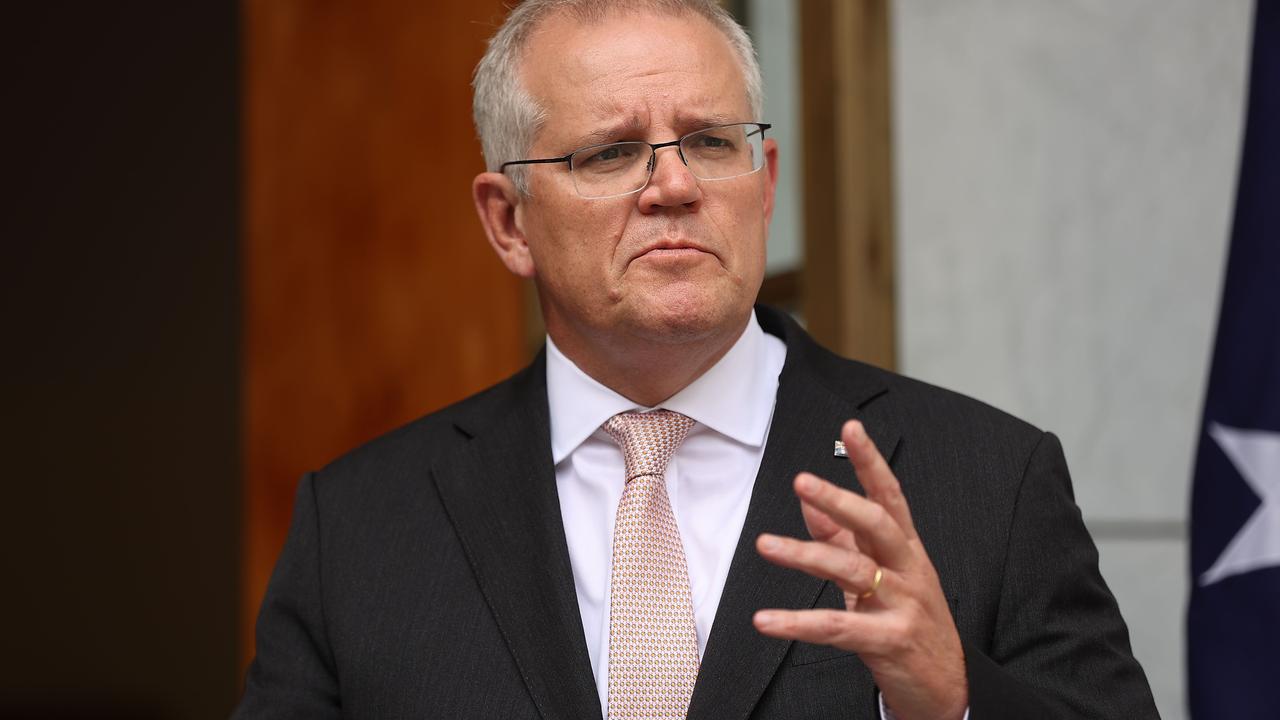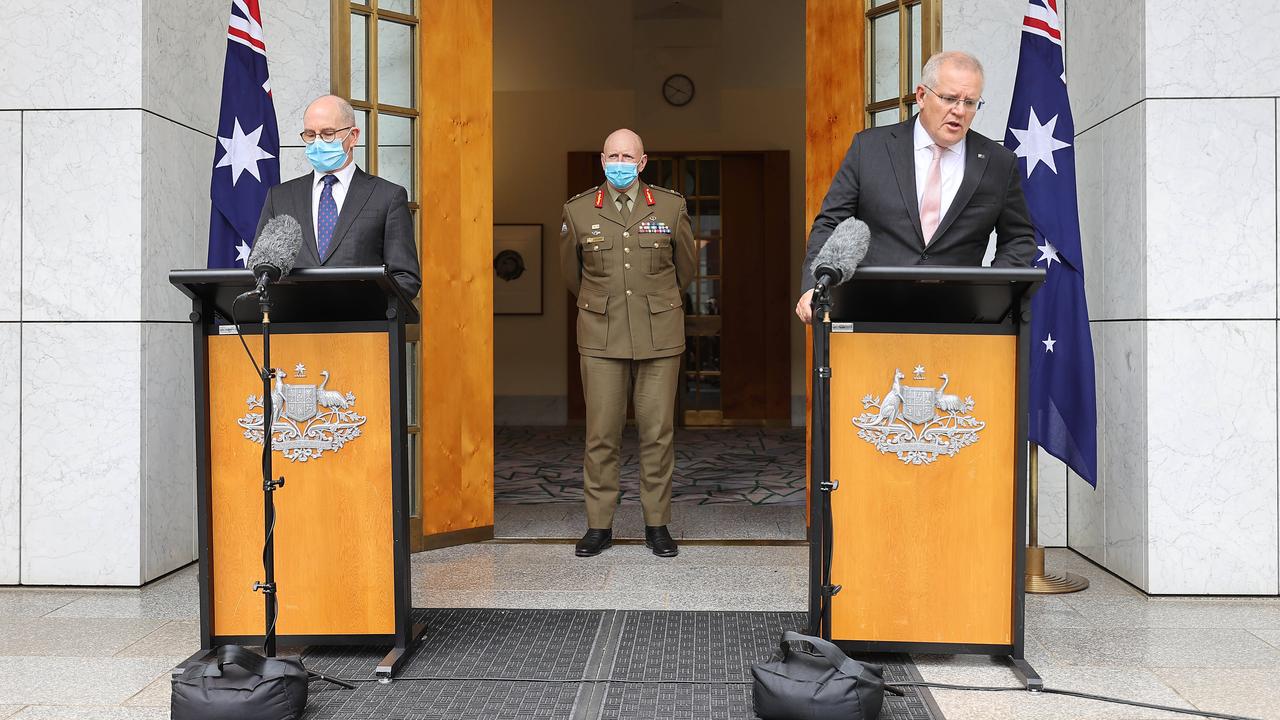Prime Minister Scott Morrison announces major changes to close contact isolation rules for essential workers
Changes to close contact rules are on the way for a number of new workforces including service stations and transport. See the list.

Changes to close contact rules are on the way for a number of new workforces as the country struggles under the impact of the Omicron variant.
Prime Minister Scott Morrison on Thursday announced national cabinet had agreed to isolation exemptions for a number of businesses in an attempt to get people back to sectors of work struggling under the pressure.
Workers who are deemed a close contact of a positive case will no longer have to isolate and will be allowed back to work if they have no symptoms and return a negative rapid test result every second day for a week.
Each state and territory will implement the changes to close contact arrangements for essential workers under respective state and territory public health orders and equivalent arrangements, according to the PM.
“Worker absenteeism due to symptomatic COVID-19 illness, identified asymptomatic infection and the required isolation of close contacts is impacting on critical supply sectors and supply chains across all states and territories,” a statement said.
“Secretary of the Commonwealth Treasury, Dr Steven Kennedy, advised that current arrangements could see 10 per cent of Australia’s workforce including many workers in critical supply sectors withdrawn from the workforce.
“The medical advice is that Omicron continues to show greater infectivity than the Delta variant, but with much less severity in terms of hospitalisations, ICU and ventilated patients. Given this it is important to continue to look at testing and isolation settings.”

Earlier this week restrictions were eased on food industry workers who had come into contact with a positive Covid case.
“Those who are driving the truck to deliver the food, those who are stacking the shelves at night, those who are in the distribution centers, those who are in the abattoirs, those who are in the manufacturing places that are producing food,” were all subjected to the change, Mr Morrison confirmed.
On Thursday national cabinet “agreed to the importance of keeping critical sectors open and agreed to extend the furlough arrangements in place for food and grocery supply chain workers to other sectors”.
It also noted the changes made earlier are already “starting to improve supply chains”.
Opposition leader Anthony Albanese however expressed concern over the lack of available tests.
“Workers need access to testing,” he said.
New sectors
A number of new sectors have now been added in the rules, namely emergency services, transport, freight and logistics.
“That also will include those who work at service stations to ensure that they can continue to be staffed and people can get access to those services,” Prime Minister Scott Morrison said.
“We will also be extending it to, if it hasn’t already been done and in many cases it has, it will cover all health welfare care and support, emergency services, which includes law enforcement, correctional services, energy resources and water and waste management, food, beverage and other critical good supplies.
“I am not talking about hospitality there.”
“Telecommunication, data, broadcasting and media, and it will also extend to education and childcare.”
“The most immediate” focus is to all transport, freight and logistics employees, Mr Morrison said.

List of essential workers
• Transport, freight, logistics and service stations
• Health, welfare, care and support (including production and provision of medical, pharmaceutical and health supplies)
• Emergency services, safety, law enforcement, justice and correctional services
• Energy, resources and water, and waste management
• Food, beverage, and other critical goods (including farming, production, and provision of, but excluding hospitality)
• Education and Childcare
• Telecommunications, data, broadcasting and media
• Financial and insurance services,
• Critical government functions, federal, state or local government and public works,
• Essential research
More Coverage
• Building and construction
• Accommodation and real estate
• Functions that support the above
Scott Morrison was warned last year that a lack of rapid tests would lead to supply chain issues. He didn't listen. He didn't act. pic.twitter.com/y8wZyVmaXG
— Anthony Albanese (@AlboMP) January 13, 2022
Read related topics:Scott Morrison





